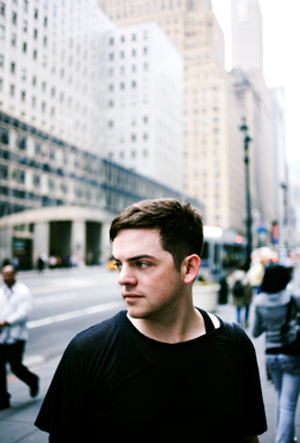Muhly premiere proves more not than hot in Seattle

Nico Muhly's "So Far, So Good" received its world premiere Thursday night by Ludovic Morlot and the Seattle Symphony.
When “the hottest composer on the planet” comes to town, audiences sit up and take notice. And so does the national press as was the case Thursday night for the world premiere of Nico Muhly’s So Far, So Good (jointly commissioned by the orchestras of Kitchener-Waterloo and Winnipeg, as well as the Seattle Symphony).
For this debut, the orchestra’s new music director, Ludovic Morlot, was on the podium. A noted champion of new scores, he gave this one an enthusiastic, committed reading that made the most of the work’s propulsive energy.
In a Seattle interview, Muhly has said that his modus operandi in composing is to “make a sketch on the smallest piece of paper you can – like an index card – and decide what is the most big-picture, zoomed-out version of the piece.” The resulting So Far, So Good sounds just like it emerged from that process: a work in which the form is possibly more significant than the content.
Muhly’s influences (primarily Philip Glass, with whom Muhly has collaborated, and John Adams) are clear in this propulsive score, which opens with tentative dense chords punctuated by brass figures over a sort of passacaglia that moves slowly forward. Gradually the work gains momentum through rippling arpeggios and oscillations, with a steady beat from repeated notes at the piano and offbeat accents from other instruments.
There’s no real sense of an ending; the music just stops, as if the composer had run out of paper. The scoring is sophisticated and accomplished, and it is easy to see why Muhly is much admired and why The Daily Telegraph accorded him that “hottest composer” sobriquet. But for this listener, So Far, So Good is more so-so, reworking well-trodden compositional ground.
Morlot, who is enjoying considerable popularity in Seattle in the first year of his music directorship, chose two standard-repertory pieces to round out the program: Schubert’s ever-popular Unfinished symphony (No. 8), and Chopin’s Piano Concerto No. 2 in F Minor, with Marc-André Hamelin as the soloist. The Schubert received an exuberant performance, nicely shaded and phrased.
The Chopin was considerably more special, thanks to Hamelin’s spellbinding performance. Diaphanous and shimmering, his playing drew the listeners into his sonic world, stretching and bending the tempo in the solo sections as if in a personal idyll. It was a performance that can’t have been easy to accompany, but one that made you long for an all-Chopin recital by this remarkable artist.
The program will be repeated 8 p.m. Saturday, in Benaroya Hall. www.seattlesymphony.org.